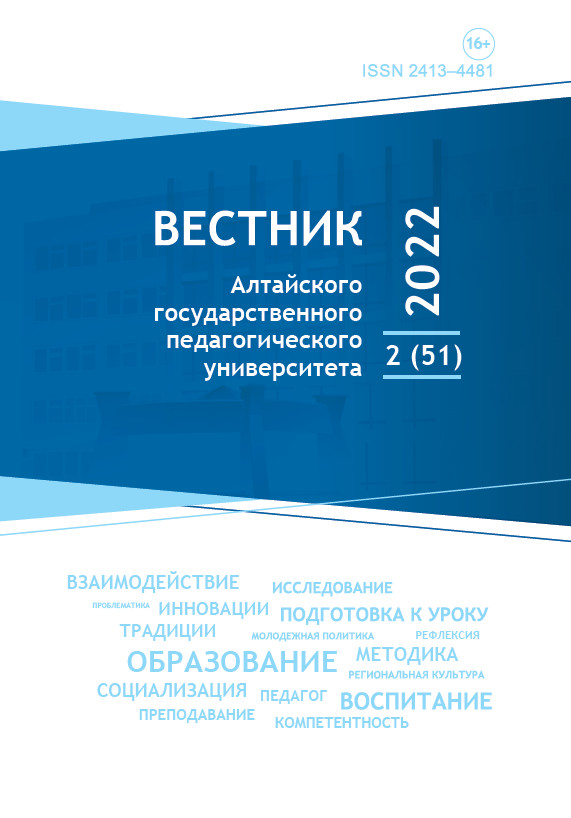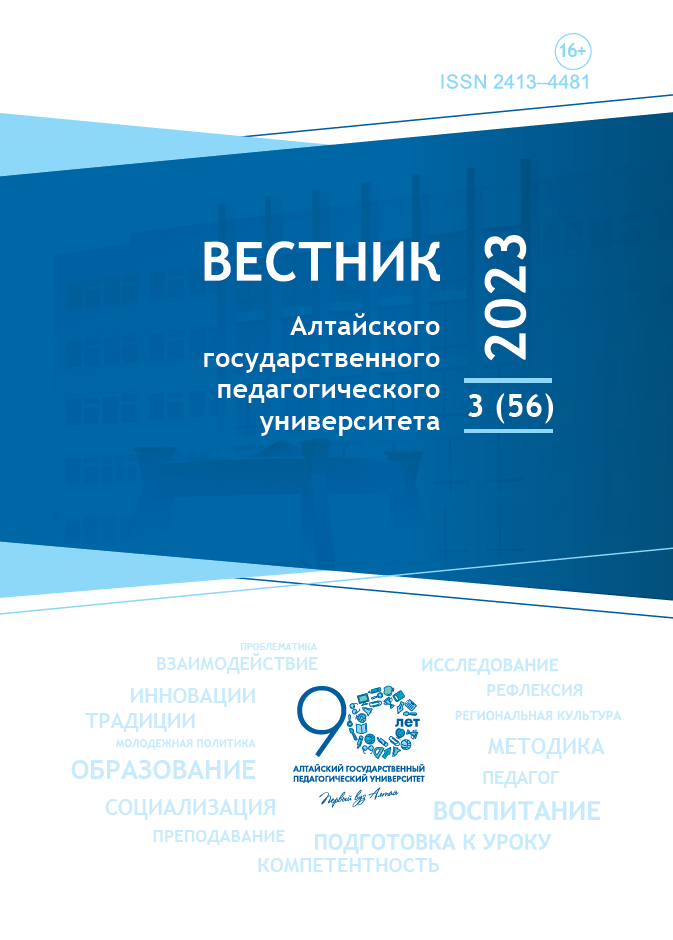USE OF PROJECT LEARNING TECHNOLOGY IN THE COURSE “INTRODUCTION TO THE THEORY OF INTERCULTURAL COMMUNICATION” IN THE FORMATION OF UNIVERSAL COMPETENCES OF STUDENTS
DOI:
https://doi.org/10.37386/2413-4481-2022-2-44-49Keywords:
intercultural communication, project-based learning technology, soft skills, universal competences, collaborative learningAbstract
The article is devoted to the issue of using the project-based learning technology, which makes it possible to form both the professional competences of future teachers of a foreign language, and the soft skills. The authors trace the history of the emergence and development of the project-based learning methodology in relation to university education in foreign and domestic practice, analyze the experience of using project-based learning technology in the course of teaching the course “Introduction to the Theory of Intercultural Communication”, suggest some recommendations for further improvement of the project-based learning technology application in the context of the development of such types of the educational process organization as independent, practical and collaborative learning. The importance of educational cooperation and the role of the teacher not as a translator of knowledge, but as a facilitator of students’ project activities are emphasized.References
Навыки будущего для 2020-х: Новая Надежда. Доклад GEF & WorldSkills Russia. URL: https://futureskills2020s.com/ru (дата обращения: 06.12.2021).
Измерение и оценка сформированности универсальных компетенций обучающихся при освоении образовательных программ бакалавриата, магистратуры, специалитета: коллективная монография / под науч. ред. И. Ю. Тархановой. Ярославль: РИО ЯГПУ, 2018. 383 с.
Knoll M. The Project Method: Its Vocational Education Origin and International Development. URL: https://www.researchgate.net/publication/243768523_The_project_method_Its_vocational_education_origin_and_international_development (дата обращения: 06.12.2021).
Полат Е. С. Метод проектов. URL: https://refdb.ru/look/2917205.html (дата обращения: 06.12.2021).
Вагина Е. Л. Технология проектного обучения в условиях профессиональной подготовки будущих специалистов // Инновационные технологии в образовательном процессе: сборник науч. трудов Курского филиала Финуниверситета по материалам XII Международной научно-методической конф. «Инновационные технологии в образовательном процессе» (21 ноября 2014 года) / под ред. Л. А. Дремовой. Курск: ГИРОМ, 2015. С. 50-53.
Gudykunst W. B. Anxiety/uncertainty management (AUM) theory: Current status // Intercultural communication theory / R. L. Wiseman (Ed.). CA: Sage Publications, 1995. P. 8-58.
Accommodating intercultural encounters: Elaborations and extensions / G. Gallois [et al.] // Intercultural communication theory / R. L. Wiseman (Ed.). CA: Sage Publications, 1995. P. 115-147.
Burgoon J. K. Cross-cultural and intercultural applications of expectancy violations theory // Intercultural communication theory / R. L. Wiseman (Ed.). CA: Sage Publications, 1995. P. 194-214.
Kim H. J. Influence of language and similarity on initial intercultural arttraction // Cross-cultural interpersonal communication Newbury Park / S. Ting-Toomey & F. Korzenny (Eds.). CA: Sage Publication, 1991. P. 213-229.
Culture, face maintenance and styles of handling interpersonal conflicts: A study in five cultures / S. Ting-Toomey [et al.] // International Journal of Conflict Management. 1991. 2. 275. 296 p.
Downloads
Published
Issue
Section
License
Для публикации статьи в журнале «Вестник Алтайского государственного педагогического университета» автору необходимо заключить лицензионный договор с федеральным государственным бюджетным образовательным учреждением высшего образования «Алтайский государственный педагогический университет» (ФГБОУ ВО «АлтГПУ»).



